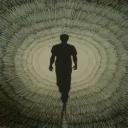Yahoo Answers is shutting down on May 4th, 2021 (Eastern Time) and the Yahoo Answers website is now in read-only mode. There will be no changes to other Yahoo properties or services, or your Yahoo account. You can find more information about the Yahoo Answers shutdown and how to download your data on this help page.
Trending News
7 Answers
- Anonymous2 years agoFavorite Answer
Unfortunately we can't do that if the person died a thousand years ago. There are several methods available to reconstruct a person that died in the recent past (within the last decades or centuries). More ancient or prehistoric populations are more difficult to reconstruct, because too much information is lacking. Our facial features and skull shape are not only genetically determined, but they're also influenced by our diet and lifestyle. Some "information", like hair texture, lip shape, nose shape (to some extent), skin/eye/hair color and wrinkles is very difficult if not downright impossible to determine without ancient DNA. I can list several Iron Age, Neolithic and Paleolithic specimens for which we have 5-10 facial reconstructions that look substantially different from one another. That said, ancient DNA has revealed some details that can't be deduced from the bones, like hair and skin color (google Cheddar man and compare his latest reconstruction to the ones we had before DNA analyses).
- brother_in_magicLv 72 years ago
Yes, all the time. They can use living subjects using a cat scan of the skull to see how well the reconstructed faces match up.
- Gray BoldLv 72 years ago
Yes. Mikhail Mikhaylovich Gerasimov (2 September 1907 – 21 July 1970) was a Soviet archaeologist and anthropologist who discovered the Mal'ta–Buret' culture and developed the first technique of forensic sculpture based on findings of anthropology, archaeology, paleontology, and forensic science. He studied the skulls and meticulously reconstructed the faces of more than 200 people, ranging from the earliest excavated homo sapiens and neanderthals, to the Middle Ages' monarchs and dignitaries, including Yaroslav the Wise, Ivan the Terrible, Friedrich Schiller and Timur (Tamerlane). Gerasimov's method has spread across the globe and has been instrumental in reconstructions of what the pharaohs might have looked like. In 1991 Russian investigators also used the methods to clarify the identities of the remains of the family of the last Tsar.
- Anonymous2 years ago
Check for accuracy against what? If there are known pix, they don't do a reconstruction.
- Anonymous2 years ago
That would be tough. A person would have to be dead before one can use the skull for facial reconstruction, and then we can only compare the reconstruction to photographs or videos but not to the real person.
- hillbillyLv 72 years ago
There seems to me that it has no way of knowing what it looked like. The eyes, nose, ears, and lips are all gone, and no way to know what they looked like, except in imagination.
- Anonymous2 years ago
EVERYBODY is different, so it's just 'an average' ..................................




